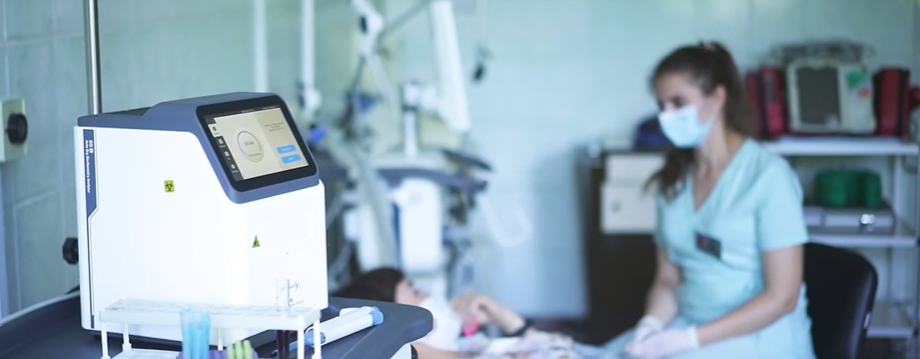release time:2022-06-09 10:24:12
SD1 is a fully automatic dry chemistry analyzer developed and manufactured by Seamaty, which can test electrolytes and routine biochemical items such as liver, kidney, cardiac, glycolipid, and pancreas. The SD1 is an intelligent, portable, easy to operate, highly automated, small sample size, accurate and maintenance-free instrument for medical and health diagnostics.
The BS-480 chemistry analyzer is a versatile mid to high volume chemistry platform with a traditional software design and easy-to-navigate interface; creating a positive user experience in today's fast-paced laboratory environment. A wide selection of test menus including general chemistry and electrolytes to meet the needs of most clinical laboratories and hospitals, making it one of the most advanced and uniquely designed diagnostic tools available for today's fast-paced, medium to high volume laboratories.
The SD1 is an instant-test portable biochemistry analyzer that can be tested anywhere, at any time, and can be installed in hospitals, clinics, laboratories, ambulances, and at the patient's bedside.
It contains the following features.
6. Lifetime maintenance: the key parts are imported, no internal liquid circuit, pump valve and other wearing parts; two-year warranty and lifetime maintenance.
BS-480 is a multi-functional medium-high biochemical analyzer, which is usually found in fixed places such as laboratory departments and laboratories where the number of test samples is high.
It has the following features.

2022-07-05
In vitro diagnostic system is mainly composed of diagnostic instruments and diagnostic reagents. For the common in vitro diagnostic medical device, the core components that mainly rely on import are as follows.

2021-10-19
Point of care testing is a rapid test performed in the presence of the patient and the person being tested. It is not necessarily performed by a specialist examiner.

2021-08-30
Biochemistry analyzers and hematology analyzers are two different instruments with different properties and categories. However, there is overlap in their testing programs. The hematology analyzer can replace the traditional biochemistry analyzer to determine blood potassium, blood sodium, blood glucose and total blood carbon dioxide, but there are differences in the results of blood potassium and total blood carbon dioxide.